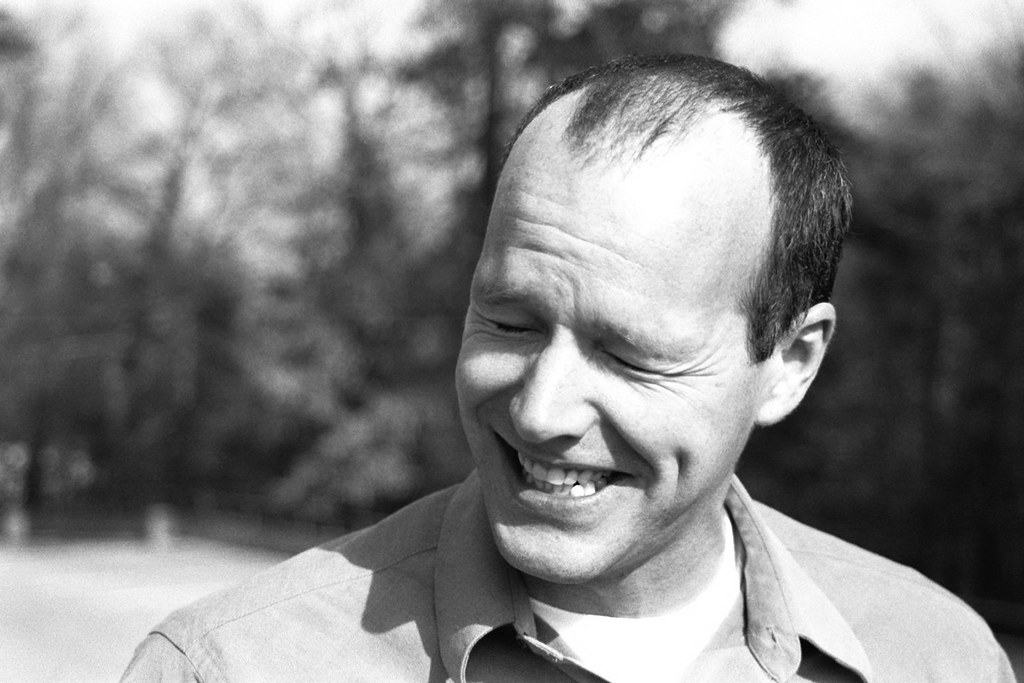October Reading Wrap Up
Wow, what an incredible reading last night -- Tony and Aaron were a powerful combination. I want to send my thanks out to both of them, to another good audience, Todd & Laura for the Blue Door, and Randall for closing out the evening.
Below is the intro I wrote up for the reading; reading reviews will come along shortly. Stay tuned for more info on November's reading featuring Jon Thompson & C. S. Giscombe.
*****
Aaron McCollough & Tony Tost Intro
- Announcements and welcome
- November 13th, 8pm – C. S. Giscombe & Jon Thompson
- January 15th, 8pm – Standard Schaefer & Marcos Canteli with Rachel Price translating
- Welcome
- Thanks for coming
- Introduce yourself
- The Desert City is a non-profit, volunteer run and funded organization. Both of the poets are appearing tonight without the promise of compensation. Please make a donation to help support the poets and the series. Thanks. Please buy books to support the internationalist.
- Thank yous
- Internationalist
- Tony & Aaron – great to have them here tonight, two good friends, first time they’ve read together.
- And Kathryn
- Tonight we’re here to see two of the nation’s most talented young poets: Tony Tost and Aaron McCollough
- Throughout the various forms – and there are many -- Aaron’s poems take runs a belief, a faith really, in love. These are not love poems, though at times they are; instead these poems examine the ethics of love, the mandate to love one’s neighbor, and the fragments of prophetic vision one receives when walking through the world with love. Aaron writes in his poem “Having Rooms,” “I may not say my love is light // my love is light / I cannot see” and later in “Democrack Pistols,” he asks “make but one body / perfect; so every particular human is but a member or branch of humankind living in the light … a fit and compleat Lord of the Creation.”
- Aaron is a southerner by birth and inclination who is currently on hiatus at the University of Michigan. On, as he calls it, the “thinking man’s dole” Aaron is working on his doctorate in Elizabethan literature and theology. This is the last, perhaps, stage in his education which has also included a Masters from NC State, a bachelor’s from the University of the South, and an MFA from the famed Iowa Writers’ Workshop.
- In addition to his own writing Aaron is the editor of Gut Cult magazine, the mind behind the Flowers that Glide web log, and genius, some might say super-genius, behind Good Gog records. He is the author of Welkin, winner of the 2002 Sawtooth Prize and Double Venus. His third collection, Little Ease, is forthcoming.
- “The pieces of a day hang like mirrors?” writes Aaron in “Hence These Alarms,” and it is from these day pieces that he creates poetry, in a nest of jumbled fragments held together often by a delicately constructed iambic line.
- The poems move from fragmented vision to fragmented vision as if we are seeing, as he writes in “Common Places”, “through breaks in a screen.”
- He describes a torture room in “National Hotel”: “steel and leathern / fixings // touching / the battery and bedsprings,” to the German town of Mainz where Gutenberg began printing, to a quiet morning breakfast: “we reach us generous endive / we make us coffee.”
- Aaron’s eye sees value in the combination of disparate images: the cherry tree in the yard: “not a lot of sunlight on the cherries; / orange almost to the stem then deep red / aureoles”, to bee hives “letting go some bees today / the old man kept in slatted wooden crates / obtaining to the husbandry of bees.”
- The drive to encompass vast ranges of landscape rises from a profound understanding that it is in the entirety and unity of creation that one finds beauty and purpose. The title of his second collection, Double Venus, highlights this belief in the fundamental and simultaneous singularity and multiplicity of us all. Aaron’s goal in his poetry is to help us reach the point where we are, as he writes in “Having Rooms”, where we are “understanding / ourselves as / one presence / beyond the shadow.”
- Please welcome Aaron McCollough.
- A highly esteemed critic of poetry once described Tony Tost’s first book of poetry as “a congeries of brazen worlds, inhabited by wide-eyed lost souls.” These souls are weeping animals, irate mothers, a narrator who “lives in the clouds, only to find [himself] thirsty”, another that thinks “being nice did not always work like magic” while flying through a windshield, Friedrich Nietzsche, a blind dog regarded “as most would a storm”, semi-sentient beards, and a woman named Agnes who at times is an airport waitress, “the sign pointing up the road”, and a Delphic oracle.
- We’re quite fortunate to have Tony living here in the Chapel Hill area. As one of the most intelligent and talented young poets writing today, Tony has been an exciting part of the literary community. He is generous with his intelligence as demonstrated by the candor and vigor that he brings to his entries in his web log, the Unquiet Grave.
- Tony came to the triangle from Missouri via the University of Arkansas where he received his MFA. He also picked up his wonderful fiancée, Leigh, whom he will marry in early June.
- Tost’s first book, Invisible Bride, won the highly coveted 2003 Walt Whitman Award from the Academy of American Poets. He is also the editor of the poetry journal Octopus. His own poems have appeared in poetry journals like Fence, Spinning Jenny, Typo, among others.
- Like the surrealists, Tony’s poems seek truth in experiments with the strange, in a derangement of the senses that might lead one to the universal truths. The uncanny images in which these poems traffic are haunting because we see something almost more than real in their irrationality. Such that when he writes “I was once a small place filled with hats” we can understand exactly what he means; that this is not a metaphor, but a true statement that can be said no other way. And so it is that Tost’s poems feel inevitable; each move from image to image, line to line seems like the inexorable movement of the sun.
- He writes, “We talked (and bruises had been sprouting on our legs like light-green dandelions)” and later “I was born holding a demons hand. This is why I always enter a room dancing” and even later “winter absorbs a man in such a way as to nearly dissolve the wolf inside him.”
- In each line of Tony’s poems a new cosmology is formed as when he writes in “Unawares” “If two objects are neaby in one direction, then a world separates them in the other: the ghost distance” and then “He walks into the bedroom. Agnes is asleep; before him is another Tony. This one looks like a ghost and patiently writes in Tony’s notebook.”
- The original title for Invisible Bride was Unawares and it is this idea that both titles express: the shadow world, the ghost world that exists a half step behind the world we think we live in – this other world that creates the one we think we inhabit. He writes “I, too, shall wear my own howling. But tonight I am dressed like a man.”
- Please welcome Tony Tost.



0 Comments:
Post a Comment
<< Home